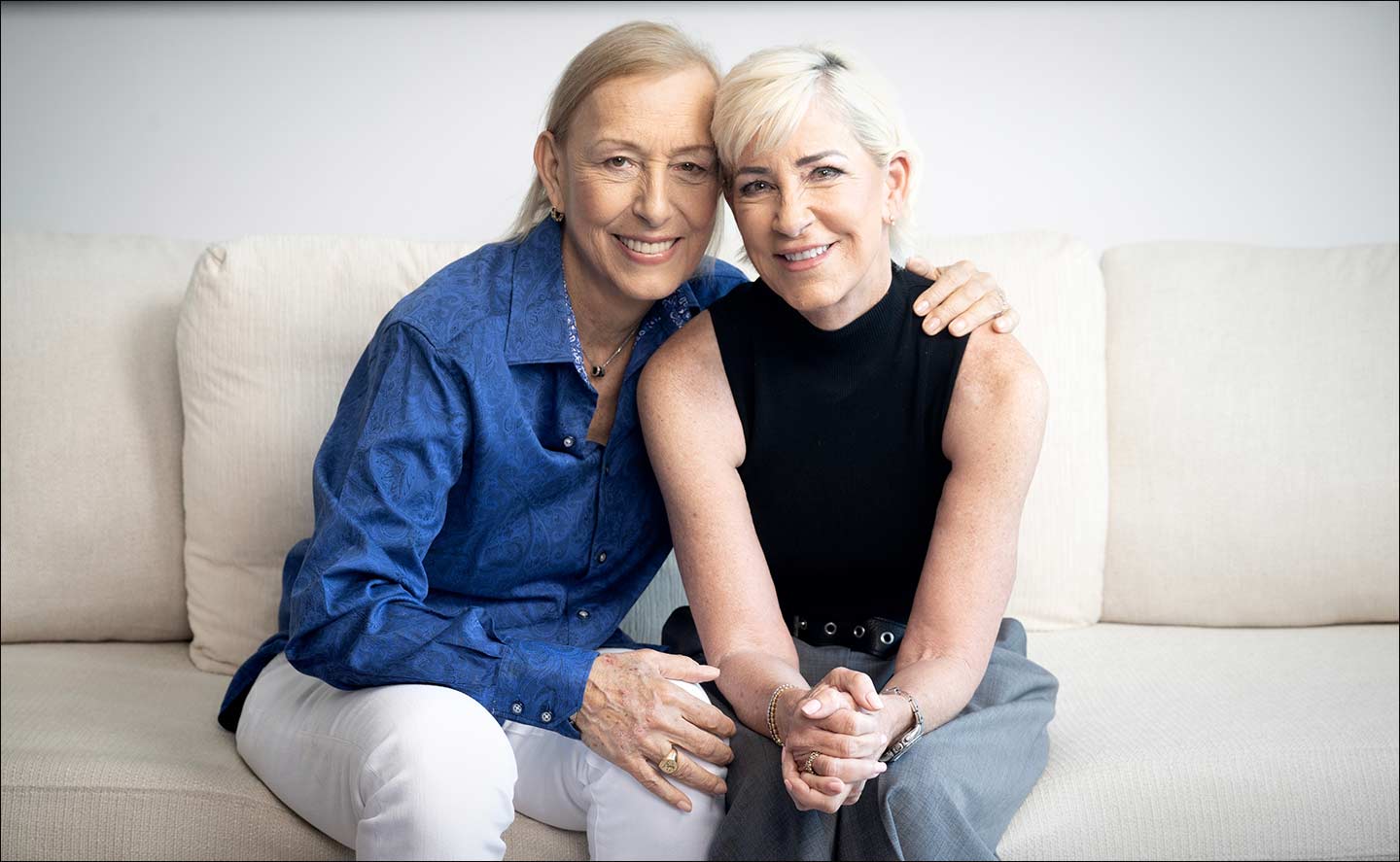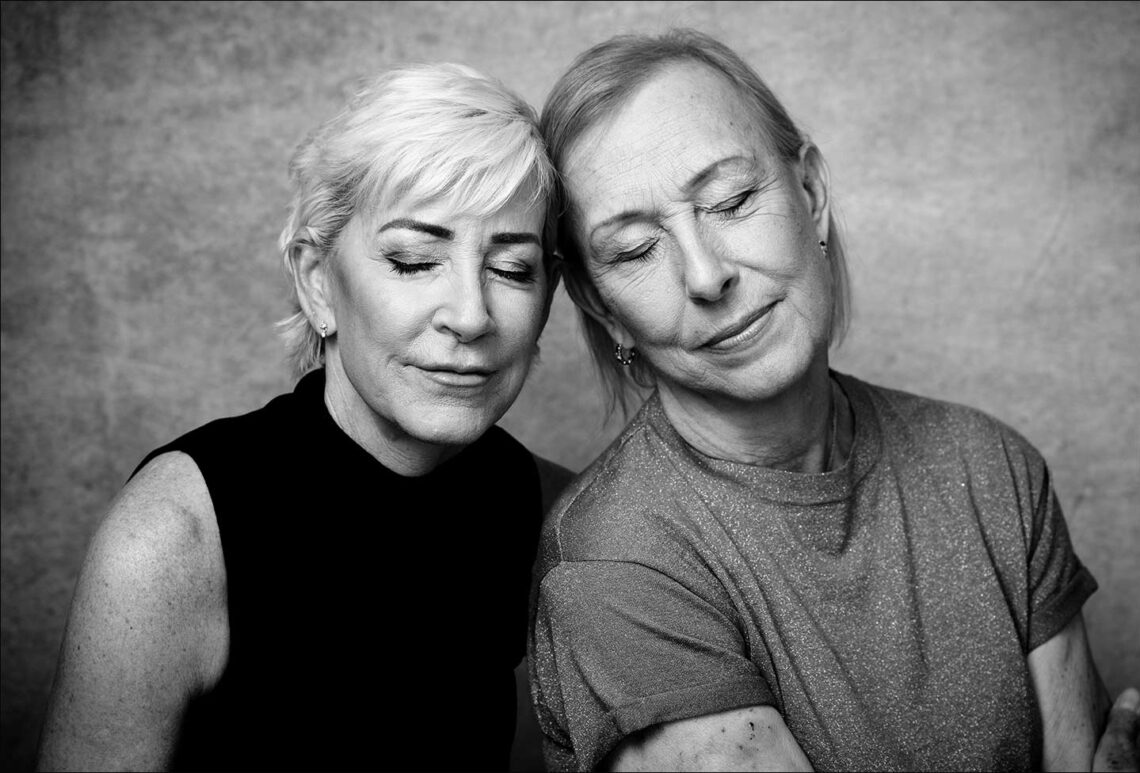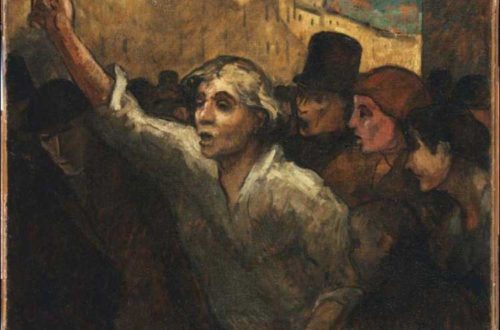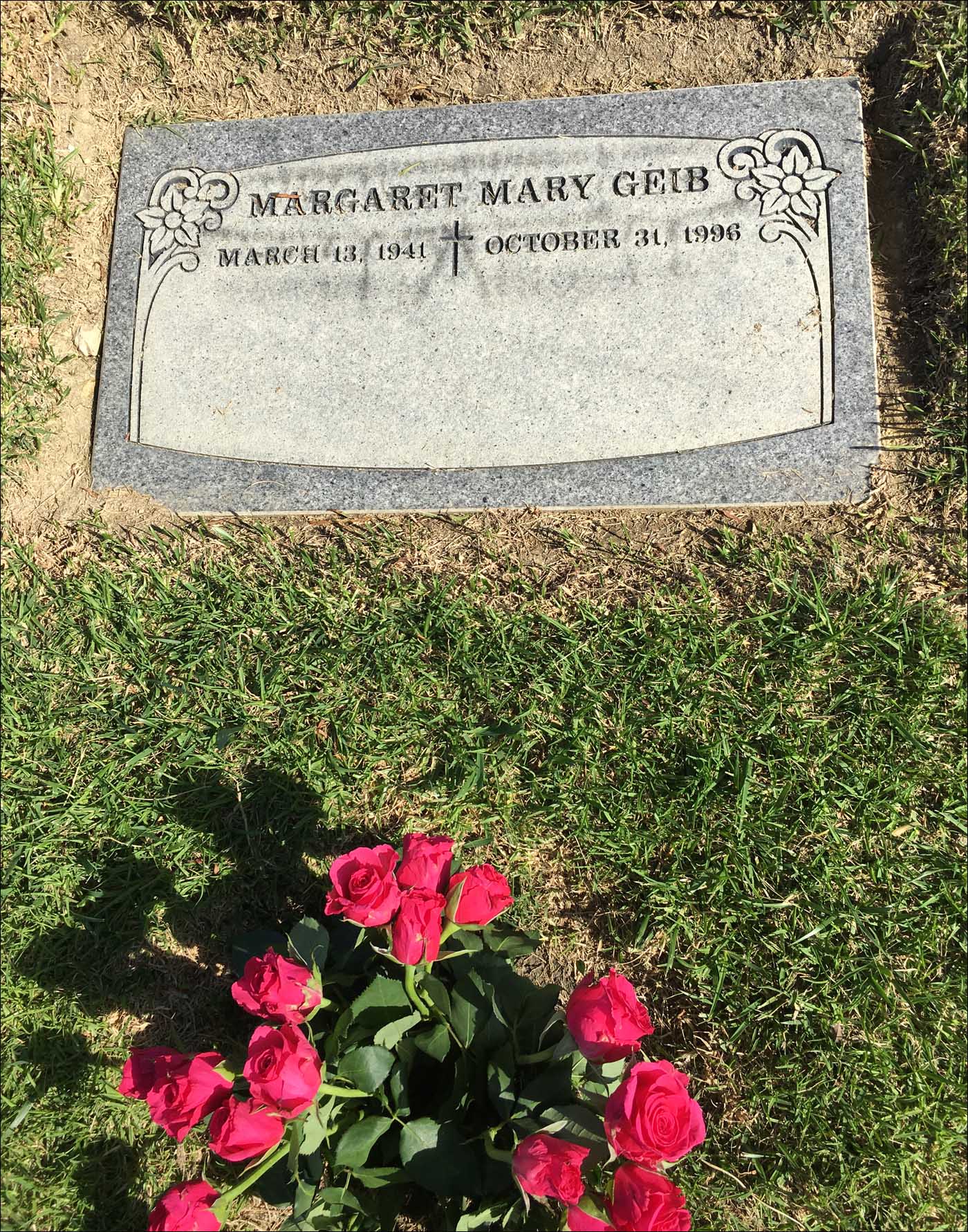Back in 2017 I was with my friend Chris Prewitt at the Indian Wells Tennis Tournament with our ten year old daughters. We had just entered the sprawling complex, and there were people everywhere. Among the throngs of spectators crowding around us, Chris warned our daughters the following:
“If we for some reason get separated from each other, I want you to go to a woman and ask her for help. Do you understand? Ask a lady who looks nice for help.”
I was immediately taken aback. I wondered if Chris was making a big assumption that some woman would be the proper person to trust, just because she was a woman. Would I automatically trust a woman over a man?
That was a hard question to answer.
I was in a similar situation as a little boy, and I chose a man. I was hugely at risk, but I was desperate. I placed my faith in the goodness of a stranger and it worked out. I was lucky.
After thinking it through some, I come to this conclusion: If I had to make such a hasty choice, I would choose a woman over a man. If I were desperate, if I had no better option… but I would be making a big assumption about a person just because of their gender. I don’t know. That might come back to bite me in the butt.
I think about that this morning in viewing the news that former tennis star Chris Everett has seen her ovarian cancer return. Evert fought off a previous bout of cancer four years ago, but it seems to have returned. We shall see what happens, but I have my doubts. I have seen my own family members wage this waka-a-mole war with metastatic cancer, and I have learned time is not on your side. Evert’s sister Jeanne Evert Dubin died from ovarian cancer in 2020. If I were a betting man, I would not bet on Chrissy Evert surviving yet another bout with cancer. She is 68-years old.
I say this as a lifelong fan of Chrissy Evert. I grew up as a kid in the 1970s and 1980s watching her win tennis tournaments. My heart would want her to beat this latest bout of ovarian cancer. My head tells me she won’t. We shall see.
But the reason I bring up Chris Evert is because of her longtime friendship with her tennis arch-rival, Martina Navratilova. They might have been enemies on the tennis court, and their rivalry helped to define both their careers in a cartoon-ish fashion. In the popular press at the time Chris was Ms. All-America girl-next-door competing against the man-ish Martina Navratilova, an immigrant from communist Czechoslovakia. The brusque, muscle bound Naratilova was the foil to Evert’s feminine archetype. Nobody failed to notice the difference between the two, and what they supposedly stood for. Navatilova was a lesbian, and Evert was not.
But then Evert retired from tennis, and eventually Navratilova did, too. Sports fans and public attention affixed their gaze to new stars like Steffi Graff or Monica Selles or Sanchez Vicario or Venus Williams or whoever. The sporting world moved on. But Evert and Navatiola remained in touch, and over the years they became fast friends. Their lives continued apace in retirement. In 1979, Evert married British tennis player John Lloyd and changed her name to Chris Evert Lloyd. But Evert cheated on her husband, and then they divorced in 1987. In 1988 Navratilova introduced Evert to skier Andy Mill and she went on to have three boys Colton, Nicholas, and Alex with him. But then Mill and Evert divorced in 2006. Then she hooked up with golfer Greg Norman in 2008 in a much publicized relationship which was said to be “true love.” The two separated fifteen months later.
It is hard to understand the romantic choices Evert had made: she had made a mess of her life. Evert was the author of the intense disorder in her life at that time. There was a serious element of self-destructiveness at play, it seemed to me. Craziness, maybe. Evert hinted at menopause, and the hormones involved, as having played a role. On the other hand, who knows? Long-term romantic relationships are hard.
Nonetheless, Navratilova stayed by the side of her longtime friend Chris Evert during those unhappy times. They were still solid friends. By that time they had known each other forever and had each other’s back – no matter what. A few years ago I watched a “30 For 30” documentary about the two friends, and it was touching to see these two ladies in late middle age talking about their friendship. It did not matter so much that these two ladies were very different – that one was straight, one gay; the one a lifelong American born and bred, the other an immigrant pursuing her personal freedom. These superficial differences masked the deep personal connection forged over decades between the two women: earned through times good and bad, but especially in the bad times. It was touching to see the two interact on camera in that ESPN video. All the differences between the two seemed trivial in that one person who struggled in life had the unconditional support and love of another person who had also struggled: that is what friendship should be. It put the tennis rivalry between the two clearly in perspective, as these mature adults saw so much more in the other than merely a tennis player.
Chrissy got cancer first two years ago. Next, Martina was diagnosed with Stage 1 throat and breast cancer two months ago. Then I read last week Chris had her ovarian cancer come back. Evert is 69 and Martina is 67-years old. I suspect Chris and Martina will be by each other’s side at their death beds. Why not? Their friendship is touching and inspiring. It is a great role model for others. As Chrissy and Martina continue to age and struggle with cancer, it is more important than ever. There is something so…. “civilized” about their friendship. I wish there were more like them.
On the other hand, there is the tennis rivalry from that same era between Jimmy Connors and John McEnroe. The two guys just hated each other’s guts. The tennis rivals warred on the court, and they were not much better off the court; the one would probably have stabbed the other in the heart, if they had the chance, in the heat of competition. They did not like each other. Period.
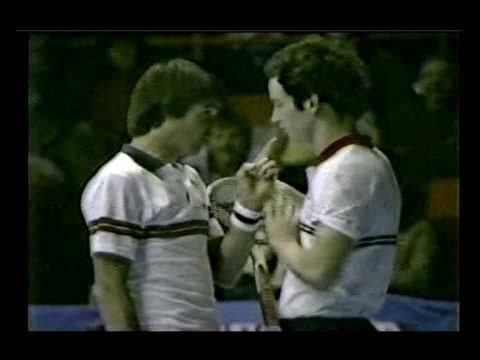
There has been little to no contact between Jimmy Connors and John McEnroe over the years since they retired. It could not be more different than the relationship between Chris Evert and Martina Navratilova. But Connors and McEnroe are of a type: the two men are jerks. And that is not something gender specific. Roger Federer and Rafa Nadal might have been rivals on the courts, but they are good friends off the court.
Back in 2012, when I used to participate in social media (Twitter), I saw a posting where Evert and Navratilova ran into each other serendipitously in the airport before and posted the following:
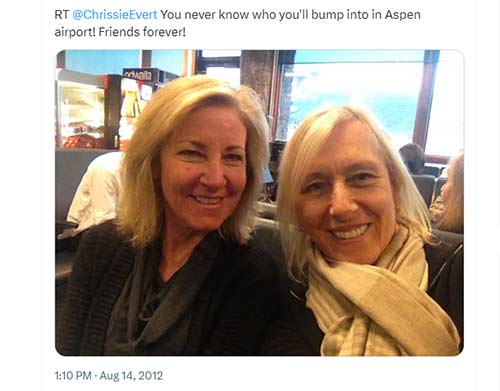
To this message I posted something like, “It is so wonderful to see your friendship over so many years. It is hard to imagine Jimmy Connors and John McEnroe doing this.” Evert “liked” my comment.
Does the Evert/Navratilova and Connors/McEnroe dynamic illustrate some deeper truth about men and women? That women are more sociable, and men less so. That most men are kind of assholes? That most women are kind of crazy? I have heard that claim asserted often.
So I return to my original question: Should a person in desperate need approach a woman for help rather than a man?
I don’t know.
But a person is on thin ice if they are making assumptions about a person strictly due to their gender. You are dealing with a stereotype which may or may not be true. Caveat emptor!
So would I urge my young daughter to ask a random woman for help rather than some random man?
I didn’t know almost eight years ago.
I still don’t know.
The question causes confusion.
There are no easy answers.
There are so few easy truths universally applicable.
Everything seems to conspire against clear understanding.
I don’t know.
But I know this: I believe in the power of friendship.
Martina Navratilova and Chrissy Evert.
